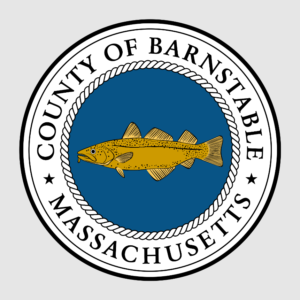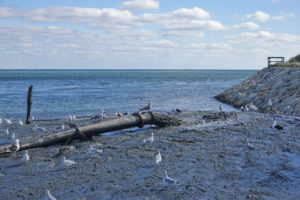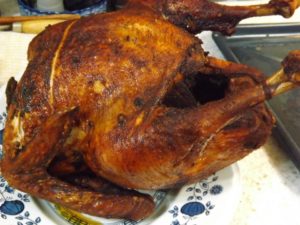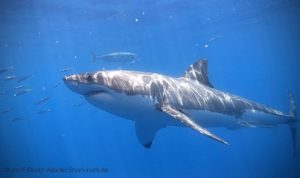
NANTUCKET – As the summer months continue on the Cape & Islands, local researchers are putting an emphasis on improving methods to deduct the most information from sharks as possible in the region.
Techniques and equipment are being used to maintain the relationship between researchers like Caroline Collatos, research assistant at the New England Aquarium, and the sharks they study on top of giving the most information possible.
“We use circle hooks, which are the legal requirement, and are proven to actually promote the shark’s health through the catching experience. Rather than a J-hook,” said Collatos who is also a PhD student at UMass Boston.
The researchers make sure to time the “fight time” as they attempt to keep all interactions with bringing the sharks to the boat or shoreline to around five minutes.
Collatos and her colleagues measure the sharks, ID the species and sex, as well as draw blood and tissue samples, before implanting the subject with an external identification tag that can help give information over many years.
“The tags that I put out in my sharks, that ‘E-ZPass’ system of tags that I put out. Those tags will last 10 years, so if I’m putting out tags now, in 2033 we can still be detecting my same fish,” Collatos said.
With the potential of growth within the project for many years, researchers like Collatos believe this is the best method to continue studying and identifying new information about all species of sharks.
More stories from CapeCod.com:
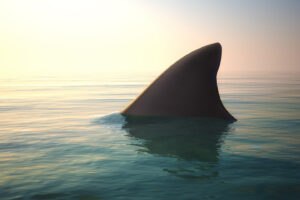 PICS: Shark Season Only Just Beginning, Say Experts September 11, 2024
PICS: Shark Season Only Just Beginning, Say Experts September 11, 2024 WATCH: “Jaws” Unavoidable as Filmmaker Seeks to Document Real Life Shark Attack for Cape Cod September 9, 2024
WATCH: “Jaws” Unavoidable as Filmmaker Seeks to Document Real Life Shark Attack for Cape Cod September 9, 2024 WATCH: How Does 5 Years Documenting Sharks off Cape Cod Change Your Perspective? More with Nick Budabin September 5, 2024
WATCH: How Does 5 Years Documenting Sharks off Cape Cod Change Your Perspective? More with Nick Budabin September 5, 2024










